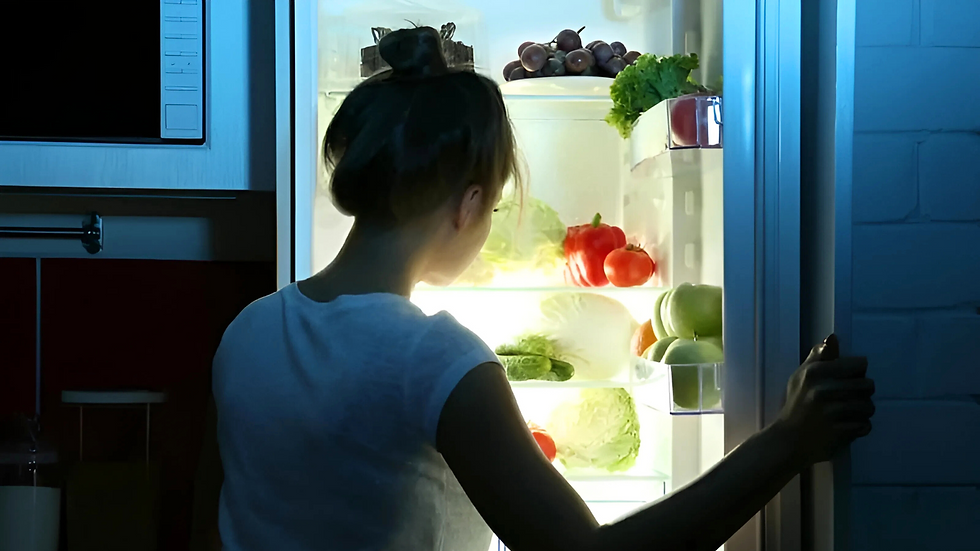Could Your Screen Time Be Wrecking Your Sleep? Here’s What New Research Says
- Clardoon Health

- Jun 16, 2025
- 3 min read

You know that feeling — you finally crawl into bed after a long day, scroll through your phone for “just a few minutes,” and before you know it, you’re wide awake, wondering why you can’t fall asleep. If this sounds familiar, you’re not alone. And now, fresh research is shedding new light on just how much that bedtime screen time could be impacting your rest.
A recent Norwegian study has found that just one hour of screen use at bedtime can lead to 24 fewer minutes of sleep and a 59% higher risk of insomnia. With so many of us struggling to get quality sleep already, this new insight is an important reminder that even small habits can have a big impact on your health and well-being.
Here’s what you need to know — and how you can tweak your bedtime routine to finally get the restful nights you deserve.
How Screen Time Impacts Your Sleep
You might have heard that social media is particularly disruptive for sleep, but the study’s findings suggest it’s not just endless scrolling that’s to blame. Watching TV, gaming, listening to music, reading on your phone — any kind of screen activity can interfere with your ability to fall asleep and stay asleep.
The researchers, who studied over 45,000 young adults aged 18 to 28, found that no particular type of screen activity was significantly worse than others. In other words, it’s the screen exposure itself, rather than what you're doing on it, that seems to be the issue.
Even though there's some debate about whether blue light specifically is the main culprit, one thing experts agree on is that bright light of any kind before bed can confuse your brain, making it harder to wind down. Our bodies are still wired like our ancestors’ — tuned to the sun’s cycle — and when you flood your eyes with artificial light late at night, your body thinks it’s still daytime.
And it’s not just your sleep that’s at risk. Long-term poor sleep can contribute to problems with your immune system, heart health, digestion, mental health, and more.
But What About Social Media?
Interestingly, the Norwegian study also found that students who only used social media before bed actually had lower rates of insomnia and slept longer than those who mixed different screen activities.
It’s possible that the social interaction offered by these platforms could help some people relax before bed. However, experts caution that this finding isn’t strong enough to recommend scrolling through Instagram as a sleep aid just yet. Other research still links screen time of any kind — including social media use — to sleep problems, especially for teenagers and younger adults who are more emotionally reactive.
So, while a little light socialising online might not be the worst thing, it’s best not to rely on it for winding down at night.
Simple Tips to Sleep Better Tonight
Luckily, you don’t have to swear off screens entirely to sleep better. Small changes can make a big difference:
Limit your screen time before bed: Try to keep it to no more than 30 minutes in the hour before you plan to sleep.
Use blue-light filters: Turn on your phone’s blue-light filter (like Night Shift on Apple or Night Light on Android) to minimise exposure to stimulating light.
Switch off notifications: Put your phone on Do Not Disturb mode, or better yet, charge it in another room to avoid being woken up by pings or flashes.
Create a wind-down routine: Listen to calming music, read a paper book, or do some gentle stretches instead of scrolling or watching TV.
Stick to a consistent sleep schedule: Going to bed and waking up at the same time every day (even on weekends) can help regulate your body clock naturally.
Your Sleep Matters — Take the First Step Today
Quality sleep isn’t just about feeling rested — it’s the foundation for your mental sharpness, emotional stability, immune resilience, and overall health. If you’re ready to reclaim your nights and wake up feeling refreshed, now’s the perfect time to get expert support.
Book your FREE consultation with a health coach today and start building habits that support restful, rejuvenating sleep — every night.
References:
Hjetland, G. J., Skogen, J. C., Hysing, M., Gradisar, M., & Sivertsen, B. (2025, May 1). How and when screens are used: Comparing different screen activities and sleep in Norwegian University students. Frontiers.




Comments